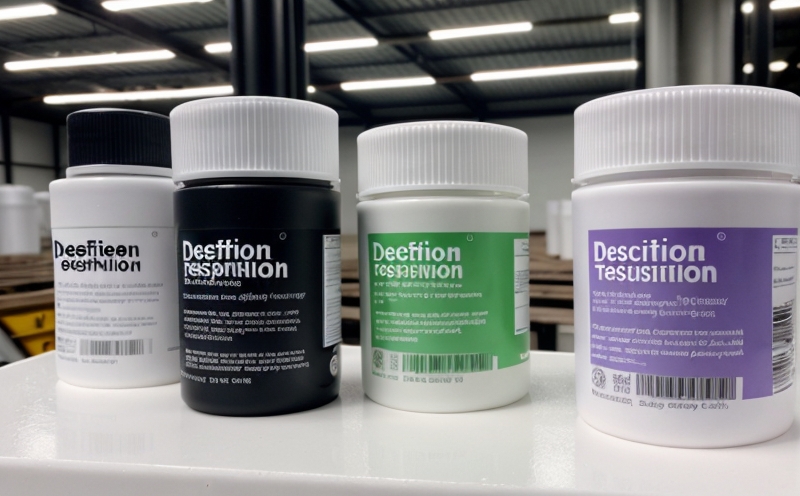EPA 8151 Chlorinated Phenols Disinfection Byproduct Test
The EPA Method 8151 is a crucial regulatory test designed to measure chloroform, bromodichloromethane (BDCM), dibromochloromethane (DBCM), and dichlorobromomethane (DCBM) in water and wastewater samples. These compounds are collectively known as disinfection by-products (DBPs). The presence of DBPs is a significant concern due to their potential carcinogenic effects on human health.
Chlorinated phenols, one of the target analytes under this EPA method, are formed during the chlorination process used in water treatment. Chlorination has been widely adopted for its efficiency and cost-effectiveness in killing harmful microorganisms but can also lead to the formation of these DBPs which may pose health risks if present at high concentrations.
The testing protocol specified by EPA Method 8151 involves a series of steps, including sample collection, pretreatment, derivatization, extraction, and analysis using gas chromatography coupled with mass spectrometry (GC-MS). This method ensures accurate quantification even in complex matrices such as natural waters or treated wastewater.
The importance of this test cannot be overstated. Compliance with EPA requirements is not just about meeting regulatory standards; it's also about protecting public health and ensuring the quality of water resources. Regular monitoring helps utilities understand the impact of their treatment processes and adjust them accordingly to minimize DBP formation without compromising on microbial safety.
Given the stringent nature of this test, accurate and reliable results are paramount. Laboratories must have state-of-the-art equipment like advanced GC-MS systems, trained personnel familiar with both the EPA 8151 protocol and other relevant guidelines such as ISO standards, and strict quality control measures in place to ensure data integrity.
Understanding the implications of this test is essential for stakeholders involved in water treatment operations. For instance, R&D engineers need accurate DBP levels to optimize disinfection processes while maintaining safety. Quality managers and compliance officers require robust monitoring systems to avoid non-compliance penalties and safeguard reputations. Procurement teams should consider these factors when selecting suppliers or evaluating bids.
In conclusion, EPA Method 8151 is more than just a laboratory procedure; it represents an integral part of the broader effort towards sustainable water management practices that balance public health considerations with environmental protection goals.
Why It Matters
The importance of DBP testing, especially through EPA Method 8151, cannot be overstated. Compliance with federal regulations ensures not only adherence to legal mandates but also the safeguarding of public health and environmental quality.
- Public Health Protection: Regular monitoring helps identify potential risks early, allowing for timely interventions to mitigate harmful impacts.
- Environmental Stewardship: By understanding DBP concentrations, water utilities can make informed decisions that reduce overall chemical footprints.
- Economic Benefits: Preventing non-compliance saves costs associated with potential fines and reputational damage. Additionally, efficient treatment processes lead to lower operational expenses.
- Consumer Confidence: Demonstrating commitment to high standards builds trust among consumers who rely on safe drinking water.
In essence, this testing serves as a critical link between policy implementation and real-world outcomes, ensuring both regulatory compliance and improved quality of life for communities served by these facilities.
Benefits
- Compliance Assurance: Ensures that all samples meet the stringent requirements set forth by EPA Method 8151, facilitating smooth audits and inspections.
- Risk Mitigation: Early detection of DBPs allows for proactive management strategies to minimize health risks.
- Data Integrity: Accurate and reliable data contribute to better decision-making processes within water utilities.
- Innovation: Insights gained from this testing can drive advancements in treatment technologies aimed at reducing DBP formation.
- Patient Safety: By ensuring that treated waters do not contain harmful concentrations of DBPs, public health is directly improved.
- Eco-Friendly Practices: Understanding the impacts helps utilities adopt practices that are less environmentally taxing.
- Operational Efficiency: Regular testing provides insights into process optimization, leading to more efficient operations overall.
- Reputation Enhancement: Demonstrated commitment to high standards enhances an organization's reputation among stakeholders and the public.
The benefits of rigorous DBP monitoring extend beyond mere compliance; they form a cornerstone in establishing trust and reliability within the water industry. This approach not only protects immediate users but also contributes positively towards long-term sustainability goals.
Eurolab Advantages
At Eurolab, we pride ourselves on providing comprehensive services that go beyond mere compliance; our goal is to offer unparalleled expertise and reliability in every service we provide. When it comes to EPA Method 8151 testing, here's why you should choose us:
- Accreditation Excellence: Our laboratories are fully accredited by relevant bodies ensuring that all tests meet international standards.
- Expertise & Experience: Our team comprises highly qualified professionals with extensive experience in water and wastewater analysis, including DBP testing.
- State-of-the-Art Facilities: Equipped with the latest GC-MS systems and other necessary instruments to deliver precise results every time.
- Quality Control: We maintain stringent quality control measures throughout our entire process ensuring data accuracy and consistency.
In addition, Eurolab offers additional value-added services such as technical support, training sessions, and consultation on best practices for managing DBPs effectively. Our commitment to excellence makes us your partner of choice for all your DBP testing needs.





